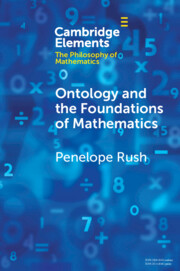Element contents
Ontology and the Foundations of Mathematics
Published online by Cambridge University Press: 17 January 2022
Summary
- Type
- Element
- Information
- Online ISBN: 9781108592505Publisher: Cambridge University PressPrint publication: 10 February 2022
Bibliography
- 13
- Cited by



